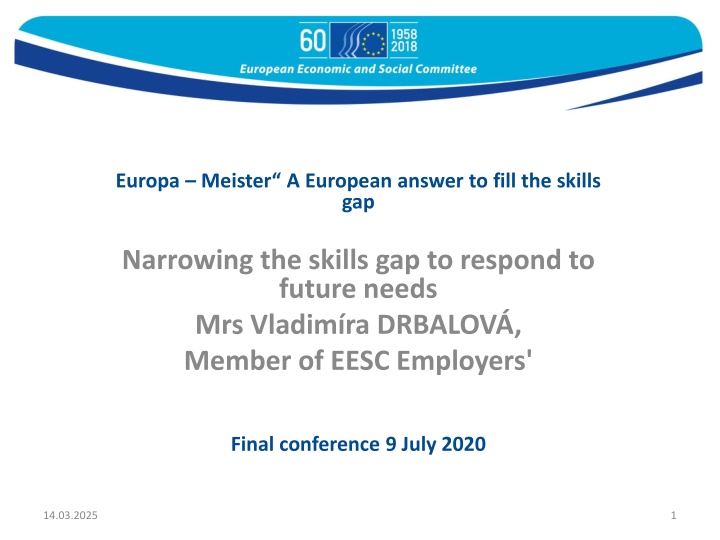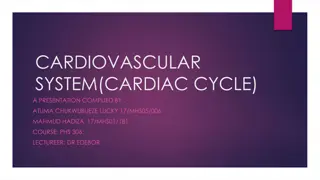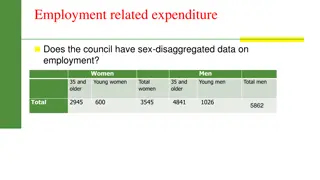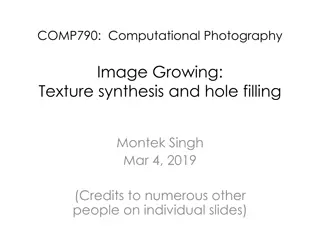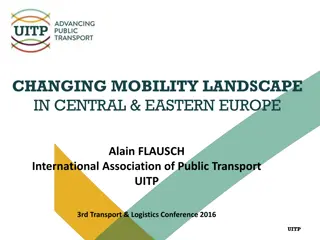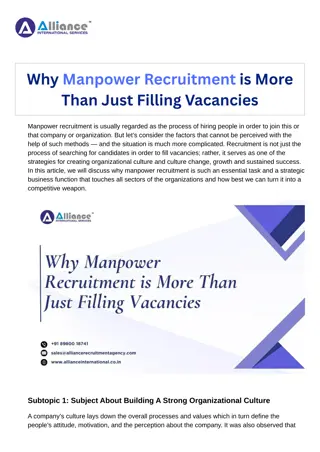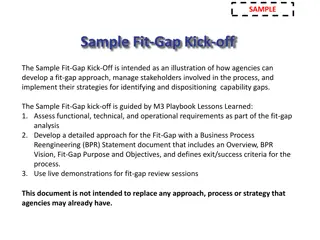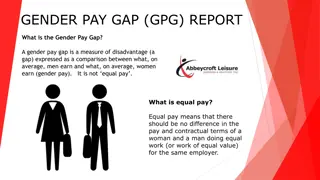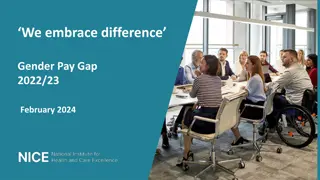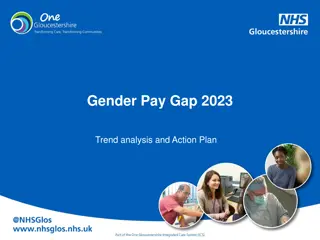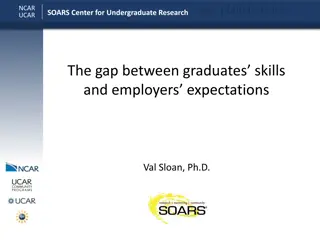Filling the Skills Gap in Europe: Strategies Beyond 2020
This content discusses the need to address the skills gap in Europe through upskilling, reskilling, and enhancing worker mobility. It emphasizes the importance of effective VET and apprenticeship systems to meet the demand for skills, particularly in STEM fields. The European Economic and Social Committee, representing organized civil society, plays a crucial role in shaping strategies to respond to future needs and foster sustainable development in the EU.
Download Presentation

Please find below an Image/Link to download the presentation.
The content on the website is provided AS IS for your information and personal use only. It may not be sold, licensed, or shared on other websites without obtaining consent from the author.If you encounter any issues during the download, it is possible that the publisher has removed the file from their server.
You are allowed to download the files provided on this website for personal or commercial use, subject to the condition that they are used lawfully. All files are the property of their respective owners.
The content on the website is provided AS IS for your information and personal use only. It may not be sold, licensed, or shared on other websites without obtaining consent from the author.
E N D
Presentation Transcript
Europa Meister A European answer to fill the skills gap Narrowing the skills gap to respond to future needs Mrs Vladim ra DRBALOV , Member of EESC Employers' Final conference 9 July 2020 14.03.2025 1
The European Economic and Social Committee is a consultative body that represents organised civil society The European Parliament, the Council and the Commission shall be assisted by an Economic and Social Committee and a Committee of the Regions acting in an advisory capacity. Treaty on European Union, Article 13
WHAT DOES ORGANISED CIVIL SOCIETY MEAN? It comprises all the groups and organisations in which people work cooperatively: Employers Workers Diversity Europe Trade Unions Employers federations, Chambers of Commerce, SME organisations Farmers, Consumers, NGOs, Professions, Disabilities, Academics, Cooperatives Farmers, Consumers, NGOs, Professions, Disabilities, Academics, Cooperatives Trade Unions Employers federations, Chambers of Commerce, SME organisations They are committed to defending their interests and causes, and they often act as intermediaries between decision-makers and citizens.
Lets take the lead! STRATEGY beyond 2020 Geopolitical, economic, demographic, technological, environmental changes Vision for EU Home of thriving business and people - generating sustainable development worldwide Political priorities Strong economic foundations Proactive climate actor Digital forerunner Fostering EU values Course of action Developing internal cooperation Influencing EESC consultation and working culture Intensifying external interaction and communication
EESC Employers Group: Political priorities beyond 2020 EU the home for thriving business and people Pillar on Strong economic foundations Part on education A lack of labour force with adequate skills is evident in several sectors and thus emphasises in addition to upskilling and reskilling the need for enhancing the mobility of workers, students and talent across borders. At the same time, in order to meet the demand for skills, effective VET and apprenticeship systems are needed and it must be ensured that both women and men have STEM competences. 14.03.2025 5
EESC/IME Study 2018 : Skills Mismatch An inpediment to the competitiveness of EU Business (6 countries) EIB s definition of competiveness: The ability of firms to mobilise and efficiently employ the productive resources required to successfully offer their goods and service ssin a global economic environment. Skills mismatches are growing concerns in the EU - quantitative, qualitative. Skills mismatches are not only deterrents to productivity and innovation, but also affect the social well-being. The learning methods and skills requirements for different occupation are changing rapidly with the emergence of new economic and social methods. Consequences and effects of skills mismatches: additional expenditures for employees training, lower competitiveness, slowdown of hiring of more workers, limitation of expanding plans, slowdown of innovation, presure on automation 14.03.2025 6
EESC-CEDEFOP: Policy learning fora Policy learning fora (PLFs), developed by Cedefop, are opportunities for countries to discuss critical challenges they face, generate knowledge and help them to learn from each other. Bringing together relevant VET stakeholders from different countries PLFs may also act as a site of consensus-building around shared problems. 1st Forum (February 2018): Tailored training and work-based learning, validation and recognition 2nd Forum (May 2019): upskilling path ways for adults 3rd Forum (November2020): experiences from the countries 14.03.2025 7
The EESC relevant opinions SOC/570 Future of work/skills: Quality of basic education. Equal access to quality early education. Reorienting of education and training and lifelong learning, strengthening VET system in order to ensure the rapid acquisition of the necessary skills. The need for basic, digital and transversal skills. SOC/576 (BG PRES) stressing the strategic importance of these areas for the future of Europe in term of economic prosperity, better cohesion and democratic life. The EESC is concerned about the significant structural problems on labour markets due to skills mismatches. Supportive education system to avoid skills mismatches: SOC/622 (FI PRE) New skills/Social inclusion: The EESC calls on the EU to take a comprehensive approach to education and training policy, considering its two-way linkages with other areas such as data, research, innovation and industrial policy, as well as economic and social policy. It calls for an increased allocation of EU funds to support reforms, cross-border exchange and cooperation in education and training. SOC/629 (HR PRES) Sustainable funding for LLL and development of skills: The EESC welcomes the focus of the EC on implementing and updating the Skills agenda, focusing on identifying and filling skills shortages and supporting reskilling as a part of the just transition. 14.03.2025 8
The implications of COVID-19 on education Our education and training system have been put to an extraordinary test urging policy makers to quickly explore and roll out different models of distance education with a strong focus on digital learning an teaching. EC Survey on How is VET provision were being organized to face the Covid-19 situation: Majority of countries are setting up on-line environments, ranging from using messaging services such as WhatsApp or through other more elaborated IT learning platforms. Focus on theoretical knowledge/ demonstration in ad hoc videos/ step by step instructions to show more practical skills linked to a more specific VET professions Some fear that VET learners might be disadvantages compared to learners from other educational tracks a more effort are put in more general school subjects. Work-based learning was maintained only in only few countries and in sectors where companies activities are still going on, this seems to be the part of VET programmes, that was the most affected during the period. On a positive side this situation is a opportunity for everyone to deepen or develop their digital skills The company training was maintained only in afew countries 14.03.2025 9
